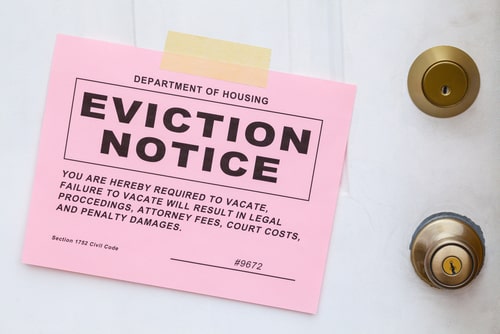
The guide does not cover lodgers (people who live with their landlord). Most of the guidance will apply equally if you are in a shared property, but in some cases your rights and responsibilities will be different. This section is for people who are either existing tenants or are about to rent a house or flat on an assured shorthold tenancy. To help address such issues, this guidance aims to set out clearly the rights and responsibilities of landlords and tenants, and the consequences of breaching these requirements. While most landlords provide decent homes for their tenants, a minority continue to break the law and rent out inadequate or unsafe housing. It’s also vital to understand that issues can arise on both sides. To maintain standards in the private rented sector, it’s important that both landlords and tenants understand and fulfil their respective rights and responsibilities. By way of comparison, the proportion of households in the social rented sector has not changed for over a decade. In 2017-18, the PRS accounted for 4.5 million, or 19%, of UK households. While the PRS has doubled in size since 2002, recent figures show that the share of all households renting privately has hovered around 19% to 20% since 2013-14. The third provides information on park homes sites and property guardians.
ILLEGAL LANDLORD ACTIONS HOW TO
The second provides landlords with information on how to maintain high standards and create positive relationships with tenants. The first is intended to help tenants understand more about their rights and obligations when renting from a private sector landlord. It sets out the roles and responsibilities of both parties when letting or renting a property in the private rented sector (PRS). This document has been produced to help both landlords and tenants. Minister for Housing and Homelessness Introduction and context How to use this guide This guide is part of the government’s work to ensure that both tenants and landlords are able to benefit from being part of a flourishing private rented sector. We would like to thank the Residential Landlords Association, National Landlords Association and Shelter for agreeing to be part of this process, and the Chartered Institute of Housing and our local authority partners for giving us the benefit of their expertise too. We have worked in partnership with stakeholders from across the sector to develop this document. Our How to rent and How to let guides are a great source of information on the steps you can and should take to make sure your rental or tenancy is on the right track.

It will also help you to avoid those situations in the first place by making sure that, whether tenant or landlord, you are aware of your responsibilities.Īs you will see from this guide, there is a wide range of supporting material about the law that applies to private renting. In situations where things do go wrong, this guide will point you to the laws which apply to you, and help you find further guidance on how to deal with the issue. There are also some tenants who do not uphold their side of the bargain. Sadly, there remains a small minority of criminal landlords who choose not to comply with the law, and whose tenants suffer as a result. The vast majority of tenancies work well.


We want to help make sure tenancies get off to a good start, and any issues that arise are dealt with quickly and properly.
ILLEGAL LANDLORD ACTIONS PROFESSIONAL
This guide aims to ensure both landlords and tenants know their rights and their responsibilities, and that the landlord-tenant relationship can be a professional and positive one. The relationship between landlord and tenant is essential to make this work, however. For many tenants it can provide a range of benefits, including flexibility and choice, while offering a sound business opportunity to those landlords who maintain their properties to a high standard. The PRS is an important part of the housing market, accounting for 4.5 million homes and representing around 19% of all housing in England. This guide is just one way in which we have boosted support for landlords, tenants and local authorities to set and maintain high standards in private rental properties. The government is committed to making sure everyone who rents can have a safe, secure, warm and dry place they call home. This consolidated guidance is for landlords and tenants in the private rented sector (PRS).


 0 kommentar(er)
0 kommentar(er)
